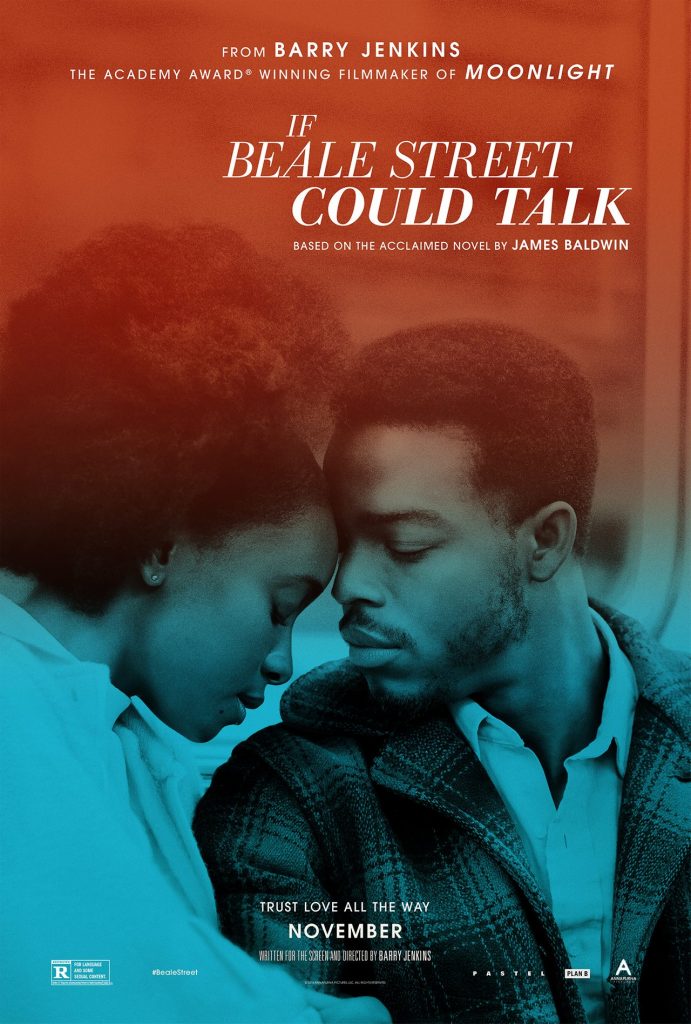Director Barry Jenkins is back with ‘If Beale Street Could Talk’

Barry Jenkins, director of the 2016 hit “Moonlight,” returns with the first ever film adaptation of one of the works of novelist James Baldwin, “If Beale Street Could Talk.” Our story focuses on Tish and Alonzo “Fonny” Hunt, a soon-to-be-married young African American couple living in 1970s Harlem. Their plans are cut short, however, when Fonny is arrested for a crime he did not commit. Now Tish, along with their families, must work to getting Fonny out of jail — all while Tish must struggle with her unexpected pregnancy.
Once again, Jenkins succeeds at crafting a moving, visually stunning experience that brilliantly captures the spirit of Baldwin’s work. The way in which the screenplay is crafted is done in an efficient, yet well-paced manner where the film weaves between events currently happening to our characters, while flashing back to crucial moments in their early days with one another. This non-linear storytelling further proves Jenkins’ talented abilities in diverting from a typical narrative structure while also keeping the audience engaged throughout.
There’s also no denying the talents put behind the visual presence this film possesses. Along with Jenkins’ distinct cinematography, including a number of close-up shots that are held to push the intensity of his scenes, the set, production and costume design are simply wonderful. The color palette simply pops off the screen without ever coming off as overly flashy, adding to the film’s ’70s time period and sense of personality. Similarly, the jazzy score composed by Jenkins’ collaborator Nicholas Britell also helped in giving the film its character and setting the proper mood.
The performances are all worth mentioning, with the work done by Kiki Layne and Stephan James as our leads proving as highlights. Layne carries the film on her shoulders almost effortlessly, giving her character Tish an appropriate blend of apprehensive energy and head strung stubbornness that makes her journey so engaging. James, on the other hand, plays a character we must sympathize with without seeing much of his life — since the majority of the film focuses on Tish trying to get him out of jail rather than his life behind bars. James pulls it off with flying colors, selling the torture that Fonny is going through during his brief scenes when he talks with Tish that gives the audience a chance to paint a picture of the horrific things occurring to him. Together, their chemistry shines and the scenes dedicated to them before the tragic events are where these two powerhouse performances are at their finest. Similarly, the supporting performances, particularly by Colman Domingo, Regina King — and one spine chilling scene with Brian Tyree Henry — are all excellent.
There are some areas, however, where the film weakens. For one, the film fails to follow-up on a number of conflicts and subplots that would’ve helped make the film feel more complete by the end. In particular, an early scene depicting the rocky relationship between Fonny’s mother and Tish had a lot of potential and is never followed up again, as well as a subplot developed later regarding Tish and Fonny’s father divising a risky plan to help out their children.
The biggest issue present were some of the decisions made to illustrate the film’s message. As can be assumed by the premise, the film wants to open up a discussion regarding police brutality and the incarceration of black men throughout history. When the film chooses to focus on telling its message in a more subtle and personal way that affects our characters, it succeeds with beautiful results. In particular, the film’s final shot practically says it all in giving the audience a haunting, yet hopeful way to end the film.
However, there are other moments when the movie blatantly plasters archival photos of police brutality towards African Americans while narration plays describing the matter. These moments frankly take you out of the experience, as it doesn’t feel like this kind of story needs to be given such a grand scale. In another movie with similar messages from this year, “The Hate U Give,” the larger, showier presentation of its morals felt more appropriate for such a premise. However here, it feels out of place and is the only part that feels dumbed down for the audience.
With that said, “If Beale Street Could Talk” is still one of the year’s best. Barry Jenkins has done it again, putting together a heartfelt tribute to James Baldwin while making a beautiful, poignant and brilliantly acted tale that’s simply wonderful to behold. Make an effort to check out this lovingly crafted tale this Christmas.
Review overview
Summary
9.4This loving tribute to the works of James Baldwin shines, with some of the year's best performances and Barry Jenkins' exceptional directing skills on full display.



























